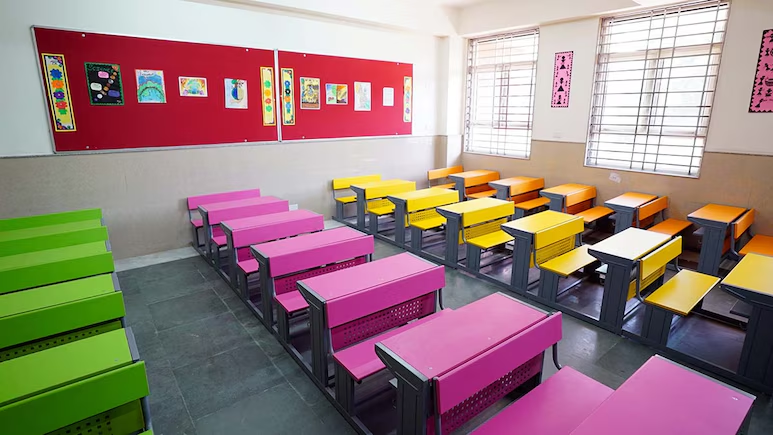
The three-language formula in the new National Education Policy (NEP) 2020 is "painful and saddening", said Tamil Nadu Chief Minister Edappadi K Palaniswami today, as he vowed not to implement the new policy. "Tamil Nadu will never allow centre's three language policy. The three language policy in the New Education is painful and saddening. The Prime Minister (Narendra Modi) should reconsider the three-language policy," the chief minister said in a statement. Though the three-language policy leaves it to states to decide on what that language would be, political parties in Tamil Nadu look at this as a tacit attempt by the centre to impose Hindi.
The Centre will not impose any language on any state, Union Minister for Education Ramesh Pokhriyal Nishank clarified through a tweet in Tamil to former Union Minister from the state, Pon Radhakrishnan, on Sunday.
What NEP says about three-language formula
The NEP proposes an “early implementation of the three-language formula to promote multilingualism” from school level. The document says the three-language formula will continue to be implemented “while keeping in mind the Constitutional provisions, aspirations of the people, regions, and the Union, and the need to promote multilingualism as well as promote national unity”.
However, the NEP also says, there will be a greater flexibility in the three-language formula, and no language will be imposed on any State.
“The three languages learned by children will be the choices of States, regions, and of course the students themselves, so long as at least two of the three languages are native to India. In particular, students who wish to change one or more of the three languages they are studying may do so in Grade 6 or 7, as long as they are able to demonstrate basic proficiency in three languages (including one language of India at the literature level) by the end of secondary school,” it adds
From the implementation from, the policy says, there will be a major effort from both the central and state governments to invest in large numbers of language teachers in all regional languages around the country, and, in particular, for all languages mentioned in the Eighth Schedule of the Constitution of India.
“States, especially States from different regions of India, may enter into bilateral agreements to hire teachers in large numbers from each other, to satisfy the three-language formula in their respective States, and also to encourage the study of Indian languages across the country,” it adds.
‘Sanskrit will be mainstreamed with strong offerings'
“Due to its vast and significant contributions and literature across genres and subjects, its cultural significance, and its scientific nature, rather than being restricted to single-stream Sanskrit Pathshalas and Universities, Sanskrit will be mainstreamed with strong offerings in school - including as one of the language options in the three-language formula - as well as in higher education,” says the policy.
The document also says Sanskrit will be taught not in isolation, but, in interesting and innovative ways, and connected to other contemporary and relevant subjects such as mathematics, astronomy, philosophy, linguistics, dramatics, yoga, etc.
“Sanskrit, while also an important modern language mentioned in the Eighth Schedule of the Constitution of India, possesses a classical literature that is greater in volume than that of Latin and Greek put together, containing vast treasures of mathematics, philosophy, grammar, music, politics, medicine, architecture, metallurgy, drama, poetry, storytelling, and more (known as ‘Sanskrit Knowledge Systems'), written by people of various religions as well as non-religious people, and by people from all walks of life and a wide range of socio-economic backgrounds over thousands of years,” the document says.
Classical Indian languages
In addition to Sanskrit, other classical languages and literatures of India, including Tamil, Telugu, Kannada, Malayalam, Odia, Pali, Persian, and Prakrit, will also be widely available in schools as options for students, possibly as online modules, through experiential and innovative approaches, to ensure that these languages and literature stay alive and vibrant. Similar efforts will be made for all Indian languages having rich oral and written literatures, cultural traditions, and knowledge.
Foreign languages
The NEP says this about teaching foreign languages: In addition to high quality offerings in Indian languages and English, foreign languages, such as Korean, Japanese, Thai, French, German, Spanish, Portuguese, and Russian, will also be offered at the secondary level, for students to learn about the cultures of the world and to enrich their global knowledge and mobility according to their own interests and aspirations.
The policy makes no mention of Chinese in a list of foreign languages offered as examples of electives that secondary school students can study. A draft version of the NEP, released in English last year, did list Chinese, along with French, German, Spanish and Japanese, as examples of languages to be "offered and available to interested students".
